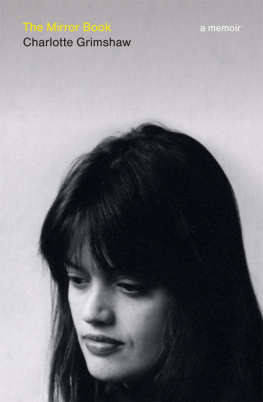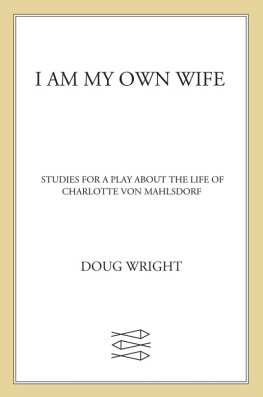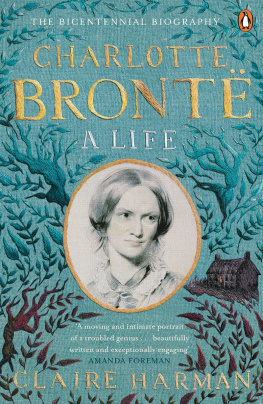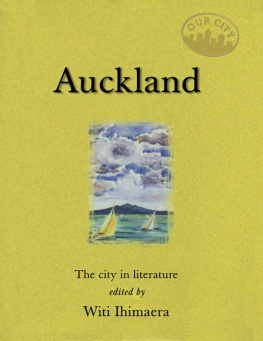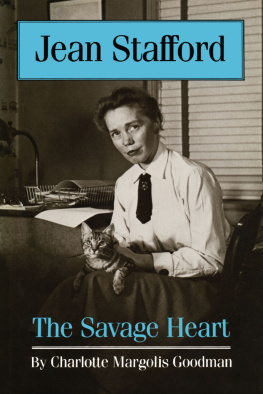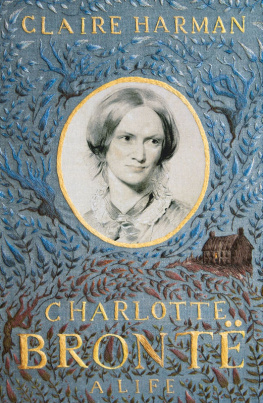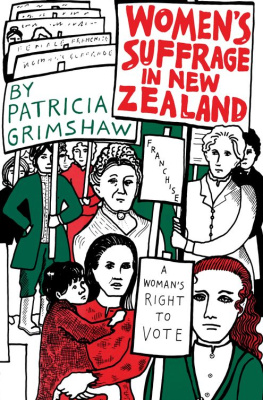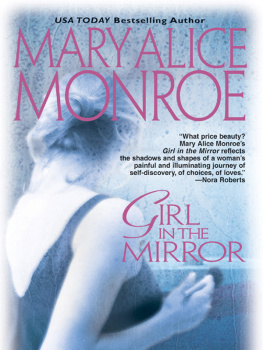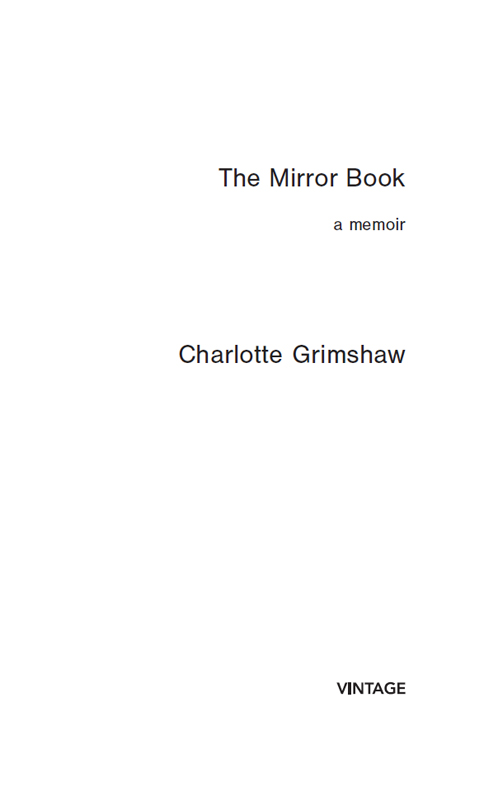This is a memoir about a personal crisis that generated a wider family dispute. Ive spent decades writing fiction, but when I was jolted off-course and wanted to discover what had gone wrong, I went looking for the true story. Almost immediately I ran into disagreements about memories, people, events about reality, no less.
Disputes happen in families; theyre part of life. They dont define a relationship; they dont define a family. Even in the most bitter arguments theres the bond, the shared experience and the love. Perhaps one party is wrong, or somewhat wrong, or everyone is wrong. Rifts can heal, arguments can be forgotten. In all of this though, I learned one undeniable fact: telling your story is existentially important. This is what Im interested in recording, the destructive effect of silence, and the restorative power of narrative.
Truth is something else. Truth is for the reader to judge and consider, to decide, or perhaps to conclude: Families are complex how can one ever really know?
Why write this account now? Ive thought about it, and my answer is that it must be more honourable to give my genuine opinion of the facts at a time when those who want to dispute it can do so.
Im temperamentally an optimist, and Ive always had a sense of hope. In this book I describe my excitement and pleasure hurrying to meet my parents in London when I hadnt seen them for a year. In this respect, nothing has changed. I havent changed. I am still devoted to them, still only a few streets away, and as Ive always told them, if they need anything, day or night, I am on my way.
When a writer is born into a family, the family is finished.
Czeslaw Milosz
When the writer who was born into the family (and finished it) goes on to have his own family, does he keep up his truth-telling ways? Is he as cold-eyed a critic of his own handiwork?
What happens when a writer is born into the family of the writer? What does that do to the writers family, to the stories the writers family tells itself?
Does it mean the fiction of the family is finished?
I was born into a writers family of five, my father the writer C.K. (Karl) Stead, my mother Kay, and three children: my older brother Oliver, I in the middle and my younger sister Margaret.
We called our territory the gully. Our house was a modest white weatherboard bungalow built inside the curve of Tohunga Crescent, an inner-city Auckland street sloping down through overgrown sections and wooden houses to Hobson Bay the bay, with its slow tides, its mudflats and dreamy mangroves. The Crescent was a dead end, with no through-traffic, beginning at the top near Brighton Road, where some of the houses were built on soft, erosion-prone clay cliffs and had sections that were shrinking, threatening to send whole houses off the edge, and gradually sloping in a half-circle down to the bay, where the last properties sat right at sea level, prone to tides that crept higher and higher across lawns and paths, towards front doors.
Number 37, halfway down the Crescent and just below the sharpest bend, had two gardens, front and back. In the back was the shed where Karl wrote, a plum tree that produced a large crop every year, and a lawn that had a pleasing feature: if you went to the edge of it, at a point below the stone wall, you would find you could roll up the turf, exposing a network of roots and writhing worms. Behind ours and through a giant, sagging hedge was the garden belonging to our neighbours, the Bonnys.
Parnell is a crowded, hilly suburb that used to be full of shabby rentals and railway workers cottages, and is now gentrified. Our wider territory was Auckland, Tmaki Makaurau, place of a thousand lovers, the sprawling city built on an isthmus between two harbours, the Waitemat and the Manukau. From the bottom of Tohunga Crescent you could look across to the Waitemat Harbour and the top of Rangitoto Island, its volcanic rim shouldering up over the horizon. We always said in Auckland you could see Rangitoto from everywhere; its shape was imprinted in our minds.
Spreading out from the city centre with its collection of office blocks and modest skyscrapers, Auckland was in my childhood (and still is) mostly low-rise, a shanty town, a haphazard jumble of wooden houses, overgrown gardens and meandering streets built around the volcanic cones whose names resonate throughout Karls poem Scoria: Maungawhau, Maungakiekie, Owairaka. A city rain-lashed, scoured by tearing wind, or shimmering and still under a haze of sun, or blazing with photographic clarity under a metallic-blue autumn sky, or sunk in the steamy lethargy of summer humidity; a Pacific city, the City of Sails, an island city, the conditions so changeable its always said, If you dont like the weather in Auckland, wait ten minutes.
In Tohunga Crescent, down at the edge of the mudflat and just outside his house, Mr Balldick had tethered a large white goat that would knock you down if you didnt avoid it, and, nearby, Old Balldick had dug a shallow pit in the mud, where ducks swam when the tide filled it. Old Balldicks beautiful stand of toetoe plumes stood pure white against the sky until the drought-hit summer I was five, when a friend and I, at a loose end, set it on fire and it went up like a bomb, the crackling fronds shooting into the air.
When the fire brigade arrived and one of the kids in the gully named us as culprits, there was a brief court case at our front gate. A fireman in a silver coat and helmet found us guilty and lectured us as we hung our heads and wept. The lesson wore off quickly, though: we went right on playing with matches. We messed around with fire all the time; it was a substance to experiment with, like sand, dirt and water. We had just enough wit not to burn down the house. (I asked Kay about this; she raised an ancient memory of her cousins burning down the hen house at her family farm at Omokoroa.) I have a picture taken by the photographer Marti Friedlander when I was around two years old. If you look closely you can see in my grubby paw a box of matches.

